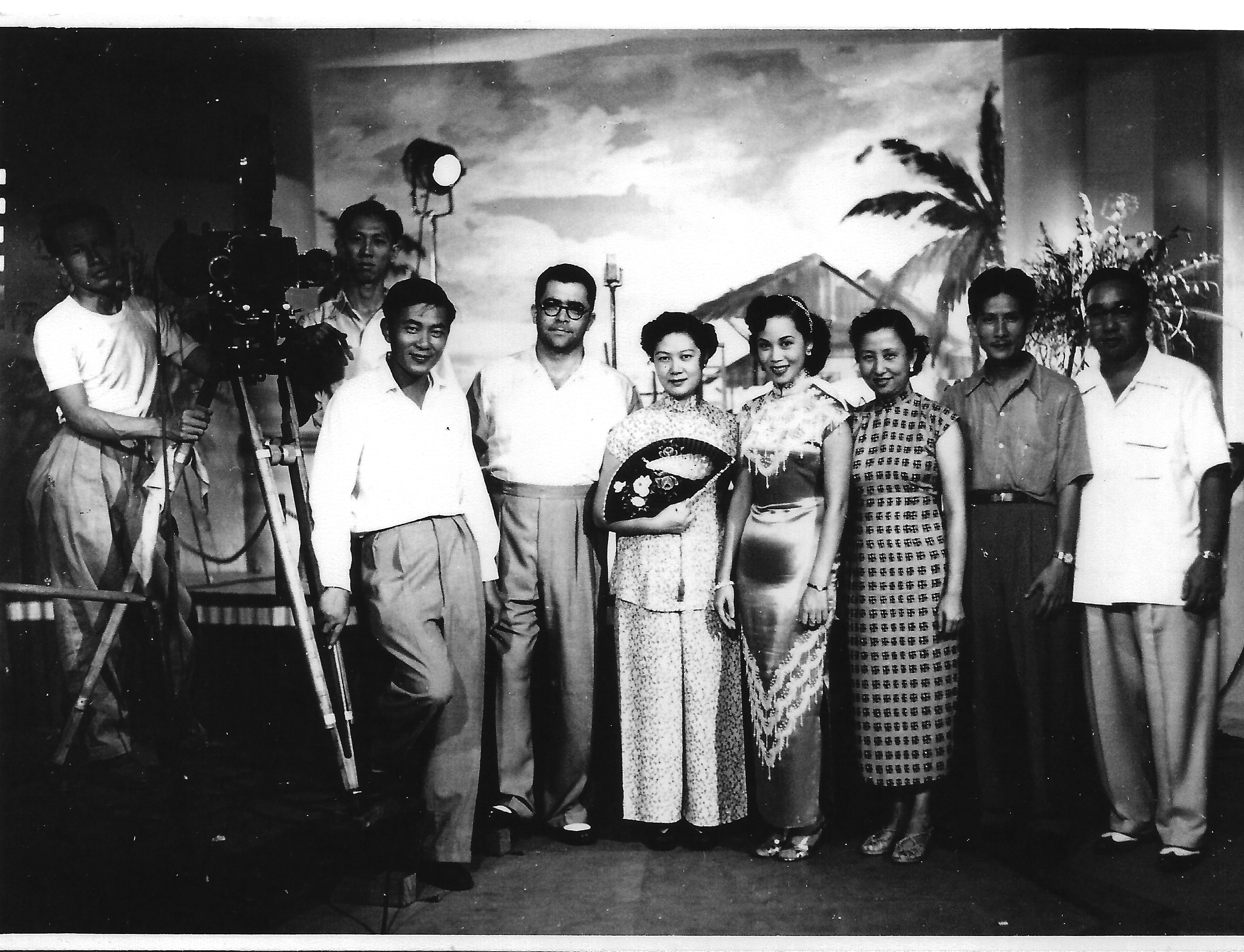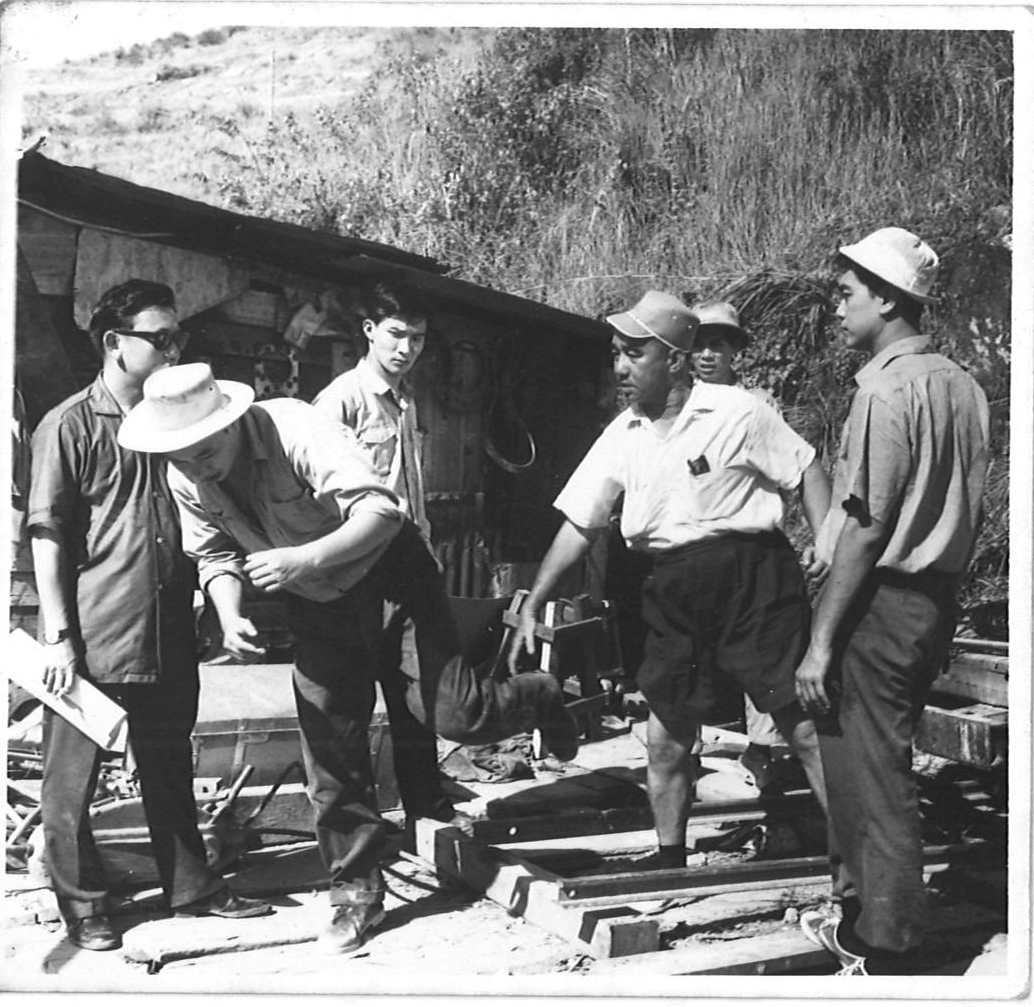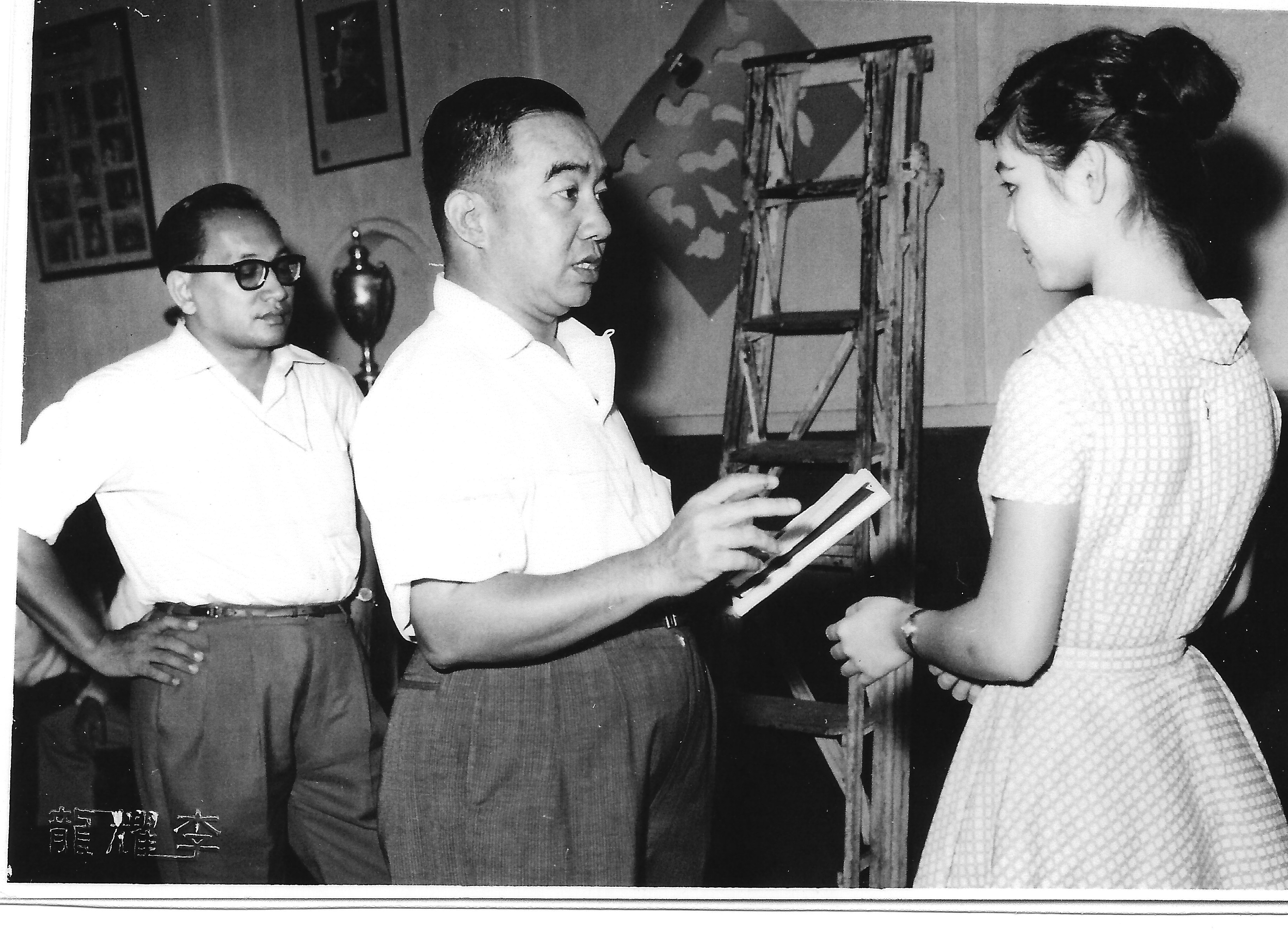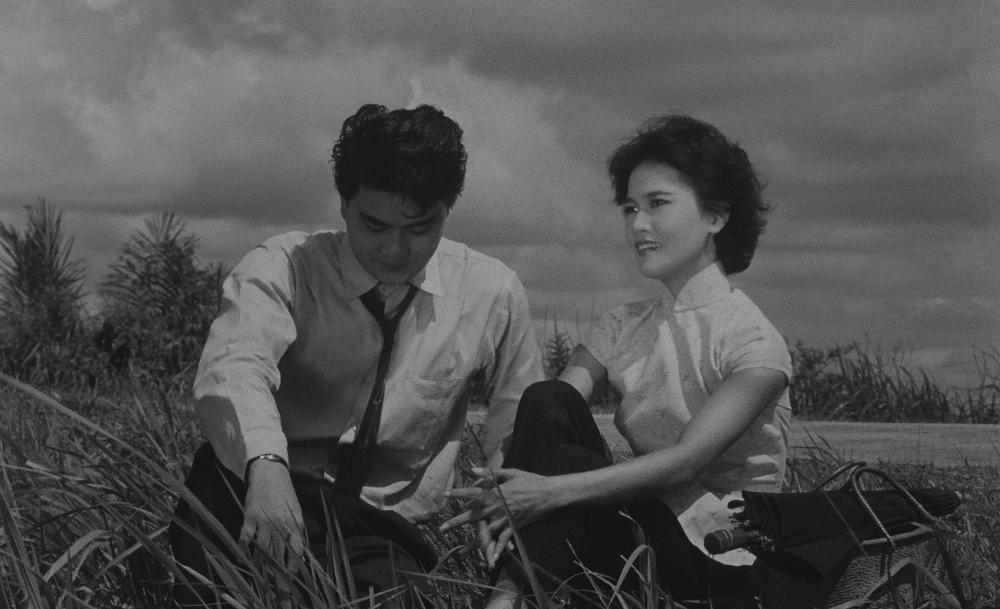During the SG50 celebrations in August 2015, Capitol Theatre hosted Spotlight on Singapore Cinema, a three-day event where various films from the 1950s to 70s were screened to the public for free.
One of these films was Lion City, the first Mandarin film produced in post-war Singapore under Cathay-Keris in 1960.
The film was directed by Chinese-Singaporean director Yi Sui, and tells the story of Shao Ming, the manager at a rubber factory (played by Pan Eng), and factory worker Feng Ling (played by Orchid Wong).
While their forbidden love is the main focal point of the story, there are several other sub-plots involving salient issues such as workers' unions and the dichotomy between values of different generations.
 Director Yi Sui and the cast of Lion City. Photo courtesy of Yi Sui's family.
Director Yi Sui and the cast of Lion City. Photo courtesy of Yi Sui's family.
Lion City incorporates clever references to the political conditions of the era, interwoven between scenic panoramic shots of 1960s Singapore and atmospheric scenes at historical coffee shops.
In particular, the film addresses the triumph of the People's Action Party in the 1959 general elections, and the "change of era" that followed.
Director Yi Sui had been approached by Cathay chairman Loke Wan Tho several years earlier with a simple request: to set up a Chinese-language branch of the primarily Malay film studio.
Yi Sui had previously studied film in Hong Kong, and even owned an acting studio. He happily accepted the challenge.
One year and $100,000 later, Lion City was born. The film was produced at a time where Malay films dominated the industry, and its use of a unique Chinese perspective and local actors was almost revolutionary.
 On the set of Lion City. Photo courtesy of Yi Sui's family.
On the set of Lion City. Photo courtesy of Yi Sui's family.
The film, which also went by the titles "狮子成" and Bandar Raya Singapura, originally premiered on December 6, 1960 at the Odeon Theatre. Three live performances kept guests entertained before the showing, and tickets went for $2, $3, and $5.
The first president of Singapore, Yusof Ishak, also attended the premiere with his wife.
In the box office, the film was a huge commercial success. It screened at four local theatres for 10 consecutive days, and in several Malayan cinemas for nearly as long. This was extremely unusual, and many took it as a sign of the film's success.
 Director Yi Sui speaking with his lead actress, Orchid Wong. Photo courtesy of Yi Sui's family.
Director Yi Sui speaking with his lead actress, Orchid Wong. Photo courtesy of Yi Sui's family.
Some critics disagreed, however, calling the plot convoluted and the acting sub-par.
Yi Sui went on to produce another six films underneath Cathay-Keris, including Black Gold (1962), but none achieved the same commercial success as Lion City.
Today, the rest of these films have been lost, and only Lion City remains.
Regardless of the film's artistic value, it is still worthy of discussion— are the values advocated the same as the ones we hold today? How has our country changed and grown?
Lion City still holds immense historical value when we look at the history of Singaporean cinema, and is an enlightening glimpse into our past.
Top photo from SG Now.
If you like what you read, follow us on Facebook and Twitter to get the latest updates.
If you like what you read, follow us on Facebook, Instagram, Twitter and Telegram to get the latest updates.
